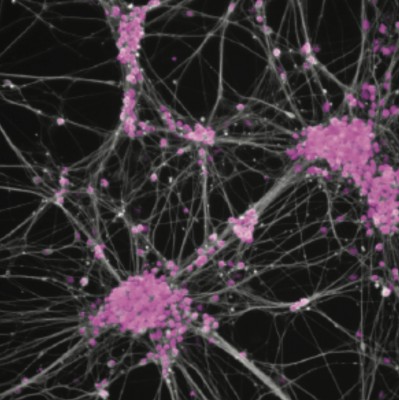
The genetic program that controls the maintenance of the properties of human pluripotent stem cells (hCMP) is strictly linked to the regulation of the cell cycle. Although hCMPs exhibit the four canonical phases of the cell cycle (G1, S, G2 and M), they present a very peculiar regulation of the same, with a short division time and a rapid alternation between the S and M phases. somatic, the progression of the cycle from the G1 phase to the S phase depends, in part, on the fine regulation of the activity of the complexes made up of the catalytic subunits, cyclin-dependent kinases (CDKs) and the regulatory subunits, the cyclins and the action of CDKs inhibitors (CKIs). MicroRNAs are non-coding RNA molecules of approximately 18-24 nucleotides that regulate gene expression. MicroRNAs play critical roles both in the maintenance of self-renewal and differentiation of human embryonic stem cells HSC and in the reprogramming of somatic cells, and they have a relevant role during neurogenesis. The present project consists of studying the changes in the expression and / or activity of the complexes that operate in the G1 phase of the cell cycle throughout the differentiation of hCMC and hCMPI to neural progenitors as well as to elucidate the role of microRNAs. that regulate this process. The knowledge acquired will allow us to design strategies to genetically modify cells to obtain a cell population endowed with a high initial proliferative capacity and a total commitment to the specific lineage.